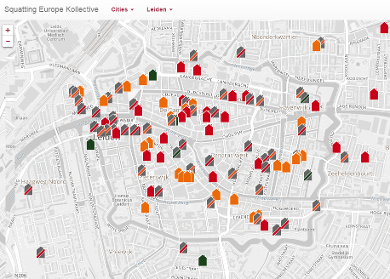Four new Research Trainee Projects at the Institute for History
This year four research trainee projects were approved by the faculty to be carried out at the Institute for History this semester.
The Research Traineeship Programme gives motivated third-year bachelor and (research) master students the opportunity to develop themselves in academic research within the field of Humanities and work with experienced academic researchers. The projects are in collaboration with other institutes or faculties. The research traineeship starts every January and has a duration of eight months.
Highway to Globalization: Suez and the Transformation of Transoceanic Shipping, 1869-1956
Dr. Anita M.C. van Dissel and dr. Crystal A. Ennis (Institute for Area Studies)
The opening of the Suez Canal in 1869 transformed existing shipping routes, providing new opportunities for transoceanic business, travel, and migration. This project explores the role of the Suez Canal as a maritime gateway in the Age of Imperialism from 1869 to 1956, when the Suez Crisis accelerated the incipient process of decolonization. It intends to create an elementary database with information about international shipping between Europe and Asia (vice versa) in the reference years 1885 and 1910 (project 1), and 1925 and 1950 (project 2) These two projects will provide a good foundation for any systematic study into voyages between the Atlantic and Indian Oceans.
Mapping Squatting in Leiden: Deconstructing the Image of the Militant Squatter
Dr. Bart van der Steen and dr. Peter Burger (Journalism and New Media)
The history of squatting in Leiden shows both the diversity of the squatter population and the prominence of squatting in middle-sized cities. Last year, we have systematically analyzed Leiden newspaper reports on squatting in the 1970s and 1980s with the help of two Research Trainees. We now wish to expand and finalize the project with a new team. We aim to document, map and analyze squatting in Leiden between 1990 and 2010, and compile an extensive and systematic dataset, which will serve as the basis for the expansion of our digital map, historical website and academic analysis. In addition, we will produce a mobile app that enables people to go on historical walking tours on squatting in Leiden whenever they choose.
Languages of Citizenship: Conceptions of Politics and Discursive Strategies in Petitions to Dutch Parliamentary Assemblies, 1796-1940
Dr. Maartje Janse, dr. Joris Oddens, dr. Anne Petterson and prof. dr. Ton van Haaften (Centre for Linguistics)
In the past decade, scholarly interest in the history of petitioning has greatly increased. Petitions are ideal historical sources to look at citizens’ conceptions of political institutions and their own citizenship, and the discursive strategies and linguistic registers employed by citizens in their communication with authorities. The aim of this project is to study these aspects in order to test whether the conventional textbook view of sharp fluctuations in citizens’ humbleness and assertiveness throughout the long nineteenth century holds up to scrutiny when it is confronted with a long-term, bottom-up perspective.
Dangerous Cities: Mapping crime in Amsterdam and Leiden, 1850–1913
Dr. Marion Pluskota and dr. Roos van Oosten (Faculty of Archaeology)
To what extent did the street patterns in urban districts influence crime patterns? A recent study concluded that there was ‘no correlation between crime and density, only a poor correlation between affluence and crime, but a very strong correlation between layout type and all kinds of crime, with traditional street patterns [relatively straight streets] the best and the most modern hierarchical layouts the worst’. These results, regularly reprised by criminologists, have, however, never been tested in a historical context, which is what this project aims to do. This project has selected two case studies: Amsterdam and Leiden, 1850–1913, based on the Arrondissementsrechtbank and Kantongerecht archives, respectively. Judicial registers in these archives detail c. 50,000 individuals charged for Amsterdam and 10,000 for Leiden from the mid-19th century onwards. Our goal is to deliver a database of criminal records for each city of all individuals charged, every five years, starting with 1850, and to plot the data on a historical map
More information about the Research Trainee Programme and other projects can be found here.
